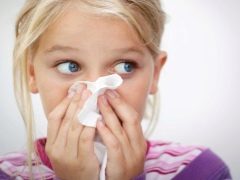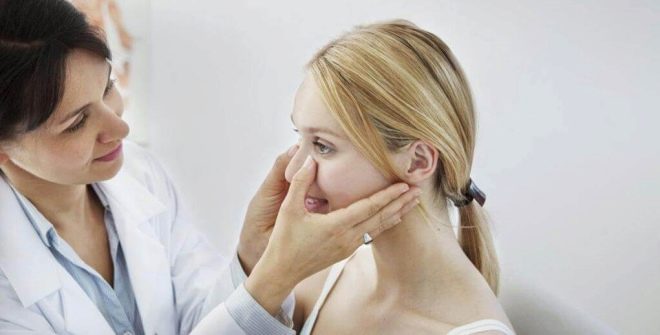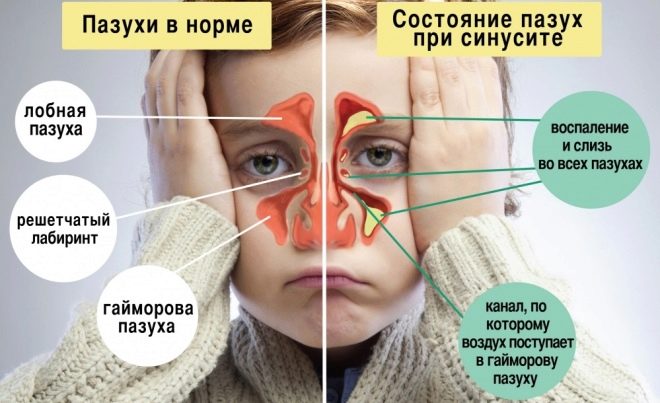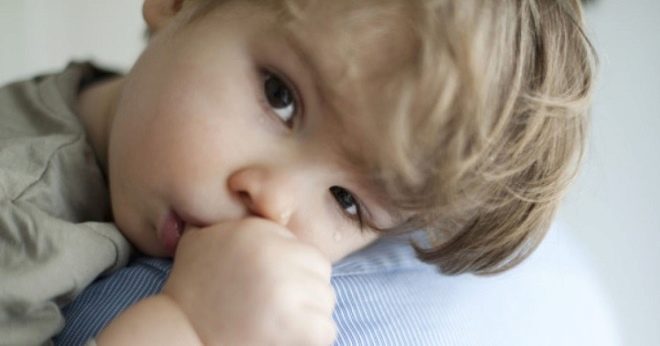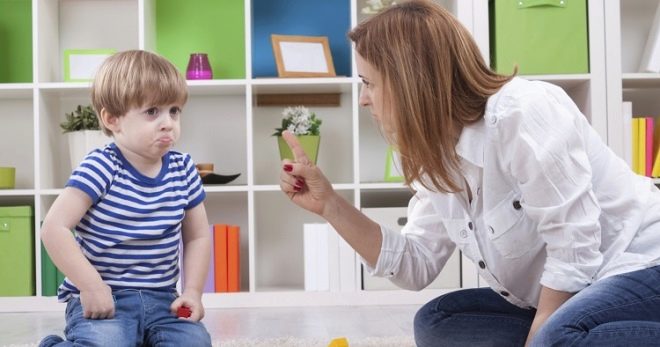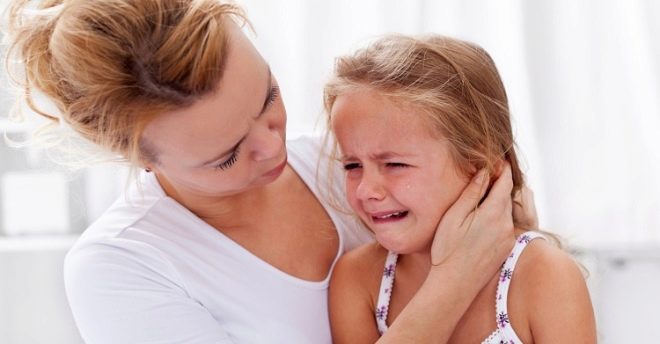Psychosomatic causes of sinusitis in children and adults
Sinusitis is a disease that is diagnosed not only in children, but also in adults. Among the ENT diseases, it occupies a leading position. The prevalence of the disease is growing rapidly. According to the latest data, it is 140 cases for every 1000 people. WHO stresses that every year the number of cases of sinusitis grows, and it’s not yet possible to name the reasons for such a negative trend.
There are psychosomatic causes of the development of sinusitis, which help to get rid of it.
General information
Sinusitis is a type of sinusitis - an inflammatory disease. The mucous membrane of one or several sinuses is exposed to inflammation. In the case of sinusitis, the maxillary sinus is inflamed, with frontal sinusitis, inflammation of the frontal sinus is observed.
Often, sinusitis occurs as a result of complications after acute respiratory viral infection. Both bacteria and pathogenic fungi can cause disease. The disease can develop after the injury of the face.
Sinusitis is accompanied by a feeling of oppressive gravity in the sinuses, which flows into pain when you try to sharply turn your head, lift it, lower it. Nasal breathing is extremely difficult, clear or purulent mucous discharge from the nose.
Most often suffer from sinusitis, children aged 3 to 15 years. In such patients, sinusitis causes an additional sleep disorder, memory impairment. Often children suffer from chronic sinusitis, which is exacerbated several times a year.
In adults, the chronic form of the disease also prevails, cases of acute sinusitis in adulthood are more likely a rarity..
Psychosomatic causes
The nose, both in terms of psychosomatics and traditional medicine, is the organ that is responsible for breathing and allows the person to catch odors. In psychosomatic medicine is considered not only the physiology of an organ, but also its connection with the psychological state of a person. Psychosomatic interpretation is that it is a body that allows a person to receive important information from the outside world. The nose allows you to "breathe" life, and the sense of smell allows you to get pleasure from this life - to enjoy the smells.
As soon as an adult or a child stops breathing through his nose, this actually interferes with the perception of life and the joy of this process. People often create such a hitch for themselves.. As soon as a person ceases to enjoy life, does not notice its "shades", he starts a runny nose.
But sinusitis is not only nasal congestion, but also an inflammatory process. In psychosomatics, inflammation is always closely connected with irritation, anger, and negative emotions suppressed in oneself. A person who suffers from sinusitis “carries” in itself a lot of negative emotions that prevent him from pleasing life and “breathing” it freely, without obstacles.
It is often believed that sinusitis appears in those who are used to suppress their own crying. From the point of view of medicine, this is not absurd - tears fall into the nasal passages through the nasolacrimal canal, they disinfect and clean it.
Crying children sniff their nose - this is the manifestation of the action of tear fluid on the nasal passages.
If a person forbids himself to cry, then the likelihood of antritis is rapidly increasing.
In psychology, there is the concept of "inner crying."It can occur in anyone, regardless of age, nature, education. But for some, "inner crying" breaks out and cleans not only the nose, but also the emotional background (people cry out, pour out the soul, it becomes easier for them), while others suppress their "inner crying", forbid themselves to throw out emotions.
It is this category of children and adults who believe that crying is indecent, ugly, unacceptable, suffer from sinusitis more often than others. Psychologists describe a person with chronic perennial sinusitis, as stingy with emotions, very restrained outwardly, but very sensitive and even suspicious internally.
And these experiences, which he prefers to leave inside, gradually begin to destroy him. Such people have low self-esteem and are prone to anger, which also does not manifest itself outwardly. The person simply clenches his fists and goes to the side, adding to his "inner piggy bank" another "destructive" experience.
In children
At first glance it may seem that children should not get sick with sinusitis and sinusitis in general, because they so easily tears. But this is only at first glance. In the mechanism of development of the disease in childhood, parents or other adults who raise children are always to blame.. For example, the strict mother says to the toddler, who raged on the playground on the street: “Stop crying! You are already big! ” A loving mother pities and calms a child, strokes his head and gently says: “All right, don't cry!” Thus, the child gets an experience that tells him to not cry, that is a manifestation of weakness, and as they grow older, the child stops crying altogether.
Some parents in their educational measures go even further, and from an early age they literally “squeeze” the ability to cry out of a child. Usually, these "sin" are the mothers and fathers of the boys, who to the year-old karapuz authoritatively and strictly forbid roaring, referring to the fact that he is a boy, and "men do not cry."
Installed since childhood installation firmly "settled" in the subconscious. Could this be the reason for the statistics, which says that among adults chronic men with sinusitis mostly suffer from men and not women? Girls, girls, women - creatures more vulnerable, more easily "giving away" emotions (offense, irritation, anger) through tears.
If the main cause of child's sinusitis is suppressed crying, then the main predisposing factor to the development of the disease should be considered a lack of love and attention. If the parents are always busy, almost do not pay attention to their child, then he begins to feel unnecessary, and strict parental attitudes "can not" forbid him to cry about it. It is in this situation that the heaviest sinusitis develops: with a high temperature and a long course.
Another wrong parenting model that allows you to raise a child with ENT pathologies is excessive care. There is no need to help a child who can serve himself (eat, dress). If parents begin to do this, then they “stifle” the child with care, and in this case not only a violation of nasal breathing develops, as well as antritis, but problems with the lungs and bronchi can also occur.
Opinion researchers
In view of the widespread occurrence of antritis, the study of the psychology of the disease was carried out by specialists, many of whom compiled tables of diseases, including sinusitis. So, a psychologist and teacher Louise Hay saw the main cause of sinusitis in children and adults is an insult to loved ones.
She believed that understatement, uncertainty in relationships, restraining one’s emotions, indecision do not allow a person to enjoy life “full breasts”, and therefore the pathology of the nose develops. The acute form of sinusitis, according to Hey, is a reaction of the psyche to experiencing a dead-end situation from which a person does not see a way out. BUT chronic sinusitis, according to Dr. Louise, is a manifestation of the fact that a person is in a state of uncertainty for a long time.
Canadian researcher doctor Liz Burbo claims that antritis is a disease of secluded people.. A person does not want to “inhale the world”, closes his own nose, which is the case with inflammation of the maxillary sinuses.
Therapist and Psychotherapist Valery Sinelnikov believes that antritis develops in those who are not confident in their own abilities, do not feel themselves capable of accepting everything new. from the outside world, in people suffering from an inferiority complex.
How to recover?
Psychosomatics in no way calls to abandon traditional treatment and stop visiting the doctor, limited only by the methods of psychoanalysis and psychocorrection. The child and the adult with diagnosed sinusitis must be treated: to fight the pathogen of inflammation and free the nasal sinuses from the accumulation of mucus.
The same will have to be done on a psychological level, only not with antibiotics and antiseptics, but with an understanding of the nature of the problem and the gradual elimination of the wrong attitudes, the main of which is “it’s impossible to cry”.
Crying can and should be at any age for both sexes. But at the same time it is impossible to manipulate others (as children or women sometimes do). You can cry when you need it. Squeezing emotions that cause tears is dangerous.
The results, which will give psychological work on their own mistakes, not long to wait. Recovery will be faster, and in the future the likelihood of a relapse of the disease will be minimal. Without such work, you can "crush" the symptoms with medications, but completely eliminate the cause will not work. - that is why sinusitis very often becomes chronic and returns again and again.
An adult suffering from such a disease must honestly ask himself what prevents him from breathing freely, enjoying life. The answers may be different: debts, fear of losing your job, family troubles. It is necessary to work with fear or anger. The task is to stop being afraid. The psychotherapist or the psychologist can help with it.
If a child is sick, parents need to give him more freedom.. They should stop pulling him off, not force him to suppress emotions. Let her cry, if she wants to, or violently rejoice when such a need arises. Then the sinusitis quickly retreat, and diseases of the nose will no longer disturb the baby.
General advice to people of different ages: to be sincere, not to keep emotions in themselves. Take everything that gives life ("breathe" it). Experiencing offense, bitterness, pain, to thank internally "teachers" and immediately release them. This will be the best prevention of sinusitis and other diseases of the nose.
